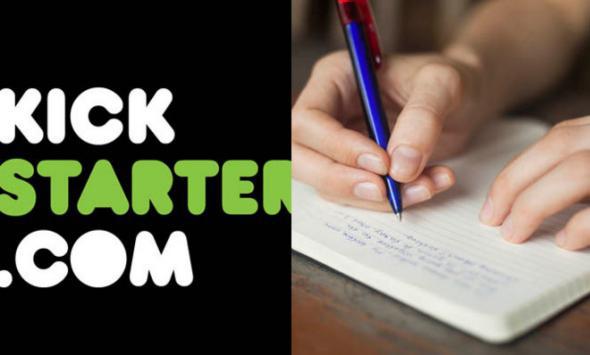A version of this post appeared on The Week.

Facebook.com/Kickstarter, Thinkstock
There’s more to Kickstarter success than having a creative idea. How you phrase your pitch may make a person more likely to donate to your project. And good news, donation seekers: Researchers may have determined the precise language that puts people in the giving mood.
Tanushree Mitra, a doctoral candidate in computer science at Georgia Institute of Technology in Atlanta, examined some 45,000 projects on Kickstarter—from Ninja Baseball, a project that got significant press attention but couldn’t reach its funding goal, to Pebble, which got more than three times what it asked for. Mitra and her team analyzed the way each pitch was written, and then noted how much money the project received above or below its goal.
They found that projects using phrases like “also receive two,” “mention your,” “given the chance,” “your continued,” and “we can afford” were the most successful.
People who described their projects with “not been able,” “even a dollar,” “later I,” “a blank,” and “hope to get” weren’t as lucky.
And it turns out that the most successful Kickstarters combined the right language with some fundamental principles of salesmanship, which late-night infomercials and boardwalk pitchmen have been doing for decades:
1. Reciprocity
Projects that promised something in return for a donation tended to be the most appealing.
2. Scarcity
Making the project sound like it was in limited supply and that people needed to get one right away was one of the top criteria for funding.
3. Social proof
Successful Kickstarters emphasized that many other people had already donated to the project, which gave the appearance of proving that the idea was worthwhile.
4. Social identity
The project leaders who wrote their pitches with a specific target audience in mind, as opposed to a pitch that appealed to the general public, tended to rake in more cash.
5. Gratitude
Consistently thanking people for their support and engagement, especially by linking to and calling out specific donors and other funders, boosted the probability that the Kickstarter would be funded.
6. Authority
Successful project leaders pointed out why they were an expert in the field and listed their credentials, making their product seem far superior. They also listed factors that made their product better than anything in existence.
Mitra—whose paper will be presented at the upcoming Conference on Computer Supported Cooperative Work and Social Computing, in Baltimore from Feb. 15-19—says that follow-up studies are necessary. For example, she hopes to talk to actual donors to determine if there were specific phrases they believe compelled them to give.
In the meantime, craft your Kickstarter carefully. Also, having a killer idea can’t hurt.
More from The Week:
11 brand names with plural problems
Why does ‘Q’ almost always go with a ‘U’?
17 disgusting descriptions for delicious wines